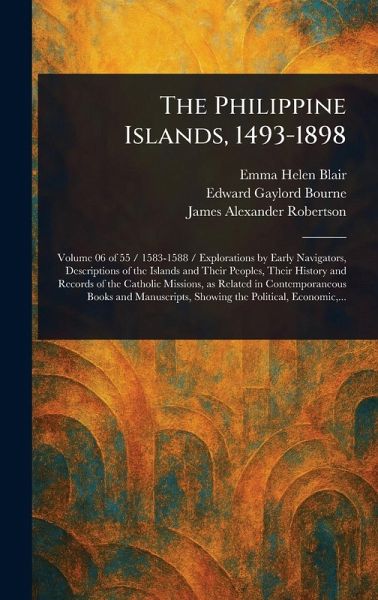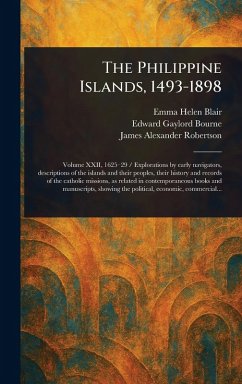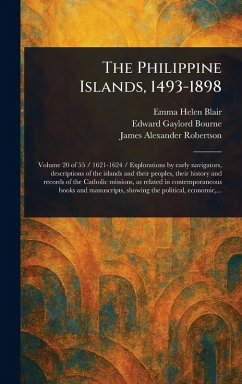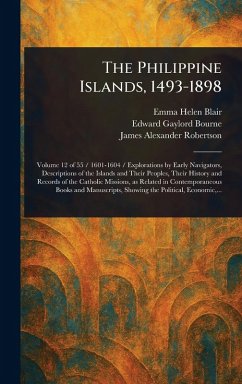
The Philippine Islands, 1493-1898
Versandkostenfrei!
Versandfertig in über 4 Wochen
30,99 €
inkl. MwSt.

PAYBACK Punkte
15 °P sammeln!
Delve into the turbulent history of the Philippines during the Spanish colonial period with "The Philippine Islands, 1493-1898, Vol. 6, 1583-1588." This meticulously compiled historical record explores Spain's exploration and governance of the islands in the 16th century. Volume 6 focuses on the years 1583-1588, offering insight into the early stages of Spanish colonialism. Explore the complexities of this era, including details relating to the demarcation line of Alexander VI, crucial in shaping the geopolitical landscape of the time. This volume provides valuable firsthand accounts and obser...
Delve into the turbulent history of the Philippines during the Spanish colonial period with "The Philippine Islands, 1493-1898, Vol. 6, 1583-1588." This meticulously compiled historical record explores Spain's exploration and governance of the islands in the 16th century. Volume 6 focuses on the years 1583-1588, offering insight into the early stages of Spanish colonialism. Explore the complexities of this era, including details relating to the demarcation line of Alexander VI, crucial in shaping the geopolitical landscape of the time. This volume provides valuable firsthand accounts and observations that shed light on the social, political, and military dimensions of the Spanish colony. Essential reading for anyone interested in the history of the Philippines, Spanish colonialism, or Southeast Asia. A vital resource for understanding the enduring legacy of this transformative period. This work has been selected by scholars as being culturally important, and is part of the knowledge base of civilization as we know it. This work is in the public domain in the United States of America, and possibly other nations. Within the United States, you may freely copy and distribute this work, as no entity (individual or corporate) has a copyright on the body of the work. Scholars believe, and we concur, that this work is important enough to be preserved, reproduced, and made generally available to the public. We appreciate your support of the preservation process, and thank you for being an important part of keeping this knowledge alive and relevant.














